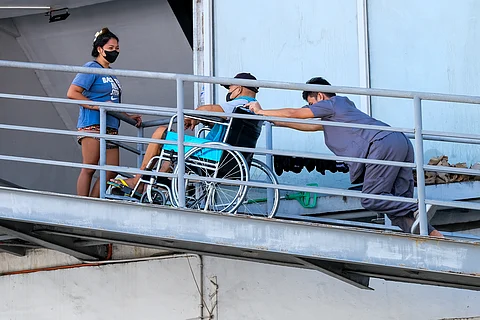
- NEWS
- the EDIT
- COMMENTARY
- BUSINESS
- LIFE
- SHOW
- ACTION
- GLOBAL GOALS
- SNAPS
- DYARYO TIRADA
- MORE

Chronic kidney disease (CKD) remains one of the country’s most underdiagnosed health threats, with nearly 13 million Filipinos at risk of it.
CKD affects an estimated 11.2 percent of the Philippines’ population or roughly 12.94 million Filipinos.
Often linked to common chronic conditions like diabetes and hypertension — collectively known as cardiovascular, renal and metabolic diseases.
These interconnected conditions share common risk factors, worsen over time, and account for nearly half of all non-communicable disease deaths.
Without timely screening and intervention, the disease can progress rapidly — placing a heavy burden not only on patients and their families but also on the healthcare system.
CKD burden in Phl
Every hour, one Filipino develops chronic kidney failure, or approximately 120 new cases per million every year, highlighting the urgent need for early detection and better disease management.
The prevalence of CKD in Asia ranges from 7 percent to 34.3 percent, with the Philippines falling on the higher end of that range — worsened by gaps in awareness, access and healthcare services.
Further, limited use of basic screening tests, such as creatinine and urine albumin-creatinine ratio tests results in missed opportunities for early detection.
In the Philippines, a recent study found that the total economic burden of CKD is estimated at a staggering P592.15 billion. Patients with diabetes, who are at high risk of developing CKD, account for 60.9 percent of these costs.
As the disease progresses, treatment becomes more expensive. End-stage renal disease, which often requires dialysis or transplantation, contributes P147.12 billion or 25 percent of the total burden.
Meanwhile, treating anemia, a common complication in the later stages of CKD, costs P123.41 billion, making up 12 percent of the total expenses related to CKD.
From awareness to action
Leading global pharmaceutical company Boehringer Ingelheim is advancing kidney care in the Philippines through innovative treatments and strategic partnerships, championing health equity by expanding access, increasing CKD awareness, and supporting early detection and healthy living.
